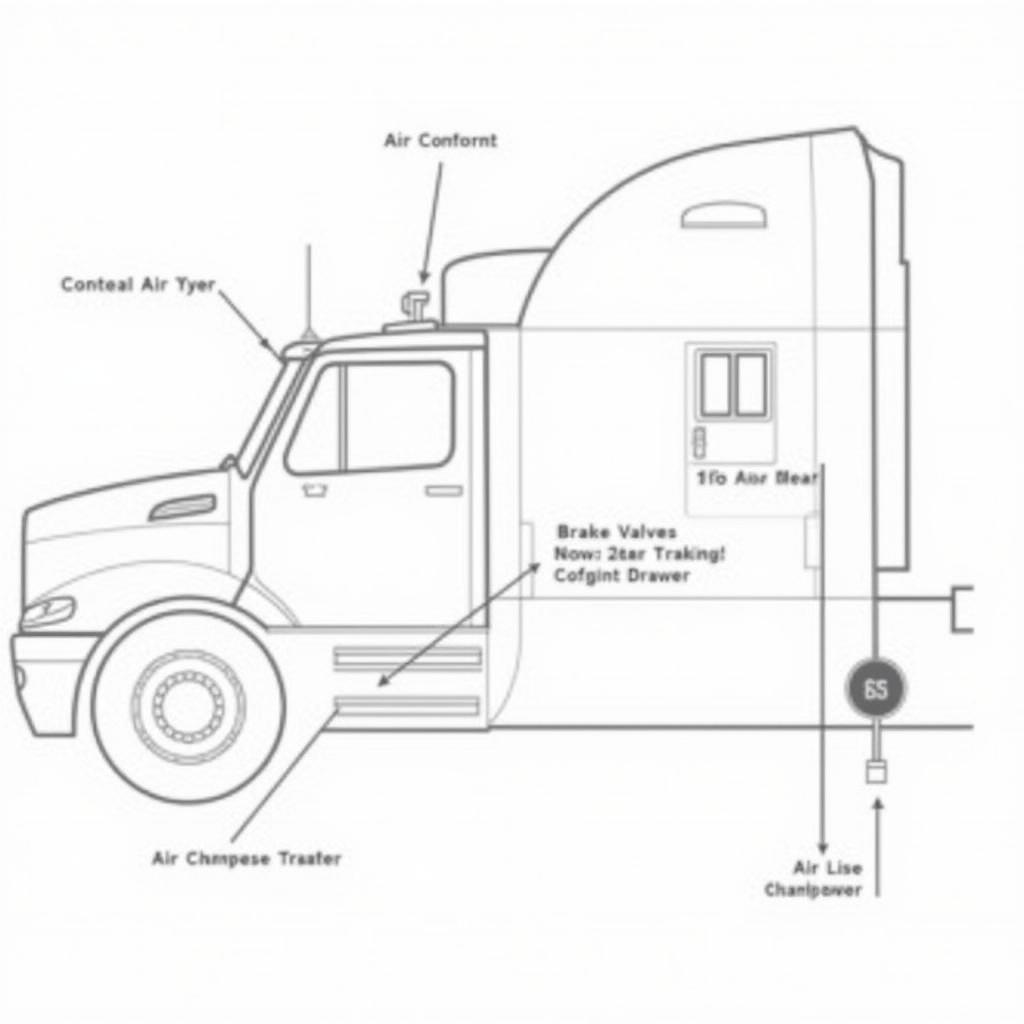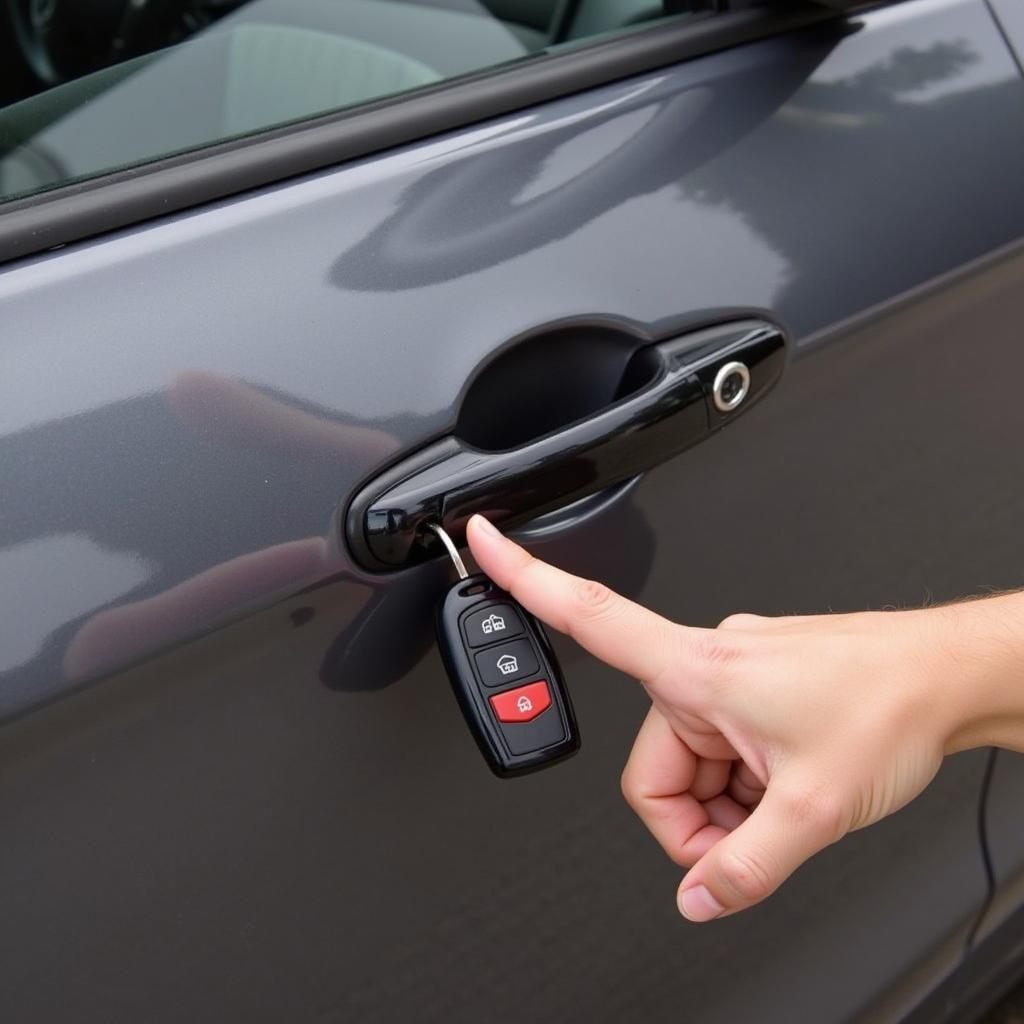If you’re experiencing issues with your Subaru key fob, like decreased range or unresponsive buttons, reprogramming it might be the solution. Reprogramming your key fob can often resolve these common problems and have you back to effortlessly locking and unlocking your Subaru in no time.
Understanding Subaru Key Fob Programming
Before diving into the steps, it’s helpful to understand the basics of Subaru key fob programming. Your Subaru key fob communicates with your car’s security system using radio frequencies. When you press a button, the fob transmits a specific signal to the car, triggering an action like unlocking the doors or popping open the trunk.
Reprogramming the key fob essentially means teaching your car to recognize and respond to the signals from your specific fob. This process is usually straightforward and can be done at home without needing any special tools or equipment. However, if you encounter difficulties, it’s always recommended to consult your Subaru dealership or a qualified automotive locksmith.
Common Reasons to Reprogram Your Key Fob
There are several instances where you might need to reprogram your Subaru key fob:
- New Key Fob: If you’ve purchased a new key fob, you’ll need to program it to your car before it will function.
- Dead Key Fob Battery: Even after replacing the battery in your key fob, you might need to reprogram it to sync it with your car again.
- Malfunctioning Key Fob: If your key fob is acting erratically, reprogramming it can often resolve software glitches.
- Synchronization Issues: Sometimes the connection between your key fob and car can become unsynchronized, requiring reprogramming.
How to Reprogram a Subaru Key Fob: DIY Method
For many Subaru models, you can reprogram your key fob yourself using a simple procedure. This method often involves a sequence of opening and closing doors, turning the ignition key, and pressing buttons on the key fob.
Important: This procedure might vary slightly depending on your Subaru’s model year and trim.
Here’s a general outline of the steps involved:
- Gather Your Materials: You’ll need all your Subaru key fobs (both working and non-working ones).
- Enter Your Vehicle: Get inside your Subaru and close all doors.
- Ignition ON/OFF Cycle: Insert your key into the ignition and cycle it between the “ON” and “OFF” positions several times, ending in the “ON” position. The exact number of cycles varies by model, so consult your owner’s manual.
- Hazard Lights Flash: When done correctly, your Subaru’s hazard lights should flash, indicating it’s in programming mode.
- Program Each Key Fob: Press and hold the “Lock” button on each key fob you want to program, one at a time, for a few seconds each.
- Exit Programming Mode: Turn the ignition to the “OFF” position. The hazard lights should flash again, confirming you’ve exited programming mode.
Seeking Professional Help for Subaru Key Fob Programming
While the DIY method works for many Subaru owners, there are situations where seeking professional help is advisable:
- DIY Method Fails: If you’ve followed the steps correctly and your key fob still isn’t working, there might be a more complex issue.
- Lost All Working Key Fobs: If you’ve lost all your programmed key fobs, you’ll need a professional to program new ones to your car.
- Immobilizer Issues: Subaru vehicles have immobilizers that prevent theft. If your immobilizer light is flashing or you suspect an issue with it, it’s crucial to contact a professional.
“Subaru key fobs, like any electronic device, can experience issues,” says John Smith, a certified automotive electrician with over 15 years of experience. “While reprogramming them yourself is often possible, don’t hesitate to seek professional help if you encounter difficulties. A qualified technician can diagnose and resolve any underlying problems quickly and efficiently.”
Options for Professional Subaru Key Fob Programming
You have a couple of options when seeking professional help for your Subaru key fob programming:
- Subaru Dealership: Your local Subaru dealership has specialized tools and trained technicians who can program key fobs for your specific model.
- Qualified Automotive Locksmith: Some automotive locksmiths have the expertise and equipment to program Subaru key fobs, often at a lower cost than a dealership.
Conclusion
Reprogramming your Subaru key fob can be a simple DIY fix for many common issues. By following the correct procedure outlined in your owner’s manual or seeking help from a professional when needed, you can ensure your key fob functions flawlessly and keep your Subaru secure.
Remember, if you’re ever unsure about any step of the process, it’s always best to err on the side of caution and consult your Subaru dealership or a qualified automotive locksmith.
FAQs
Q: How often should I reprogram my Subaru key fob?
A: There’s no set schedule for reprogramming. You’ll typically only need to do it if you experience issues, get a new key fob, or replace the battery.
Q: Can I program a used Subaru key fob to my car?
A: It’s possible, but it’s best to have it cleared and reprogrammed by a professional to ensure it’s not linked to another vehicle.
Q: What if my Subaru key fob battery dies completely?
A: You can usually start your Subaru even with a dead key fob battery by holding the fob close to the start button or using the hidden key blade.
Q: How do I know if my Subaru key fob needs reprogramming?
A: Signs include decreased range, unresponsive buttons, or inconsistent behavior like unlocking only one door.
Q: What if I lose all my Subaru key fobs?
A: Contact your Subaru dealership immediately. They can program new key fobs and often help with key replacement.
Q: Can I prevent my Subaru key fob from needing reprogramming?
A: While not entirely preventable, handling your key fob with care, avoiding extreme temperatures, and changing the battery promptly can minimize the chances of issues.
Q: Is it cheaper to program a Subaru key fob myself or go to a professional?
A: DIY programming is usually free, but if it fails, a professional might be necessary, potentially costing more in the long run.


